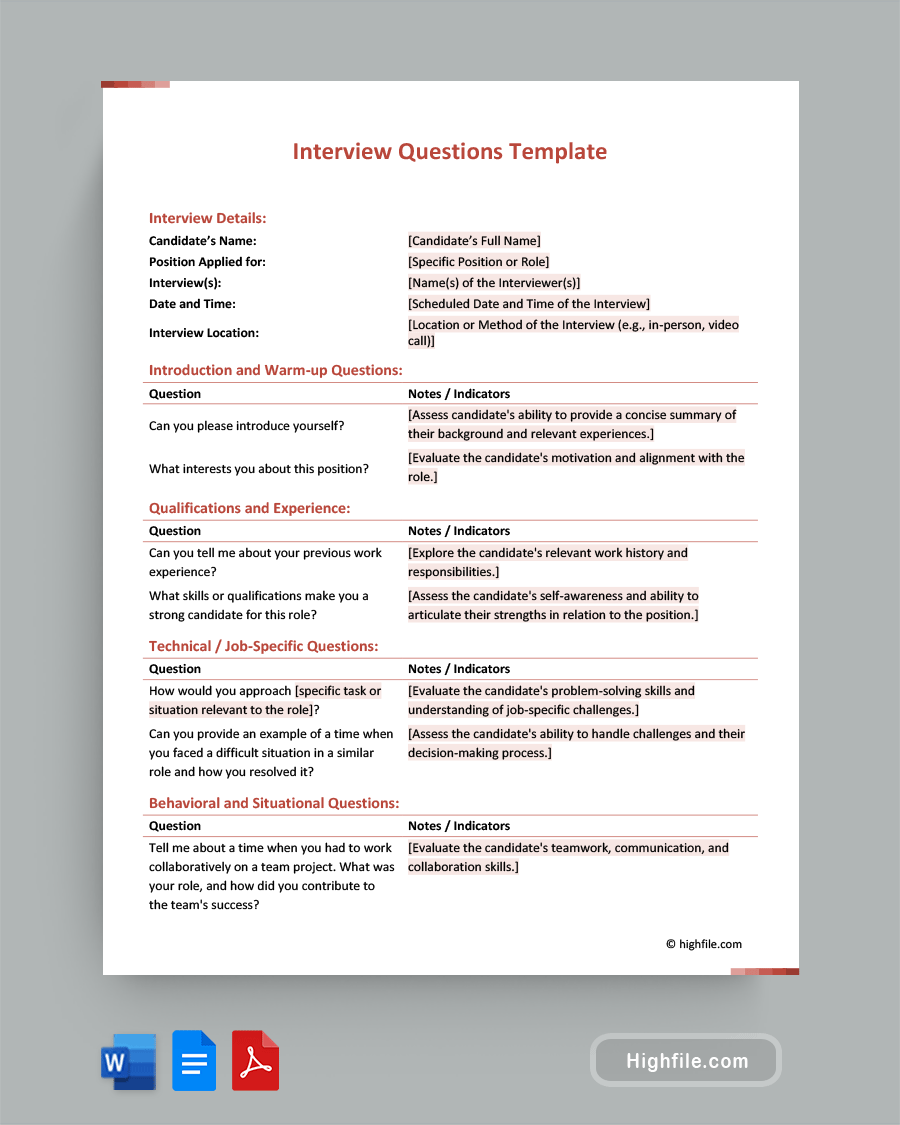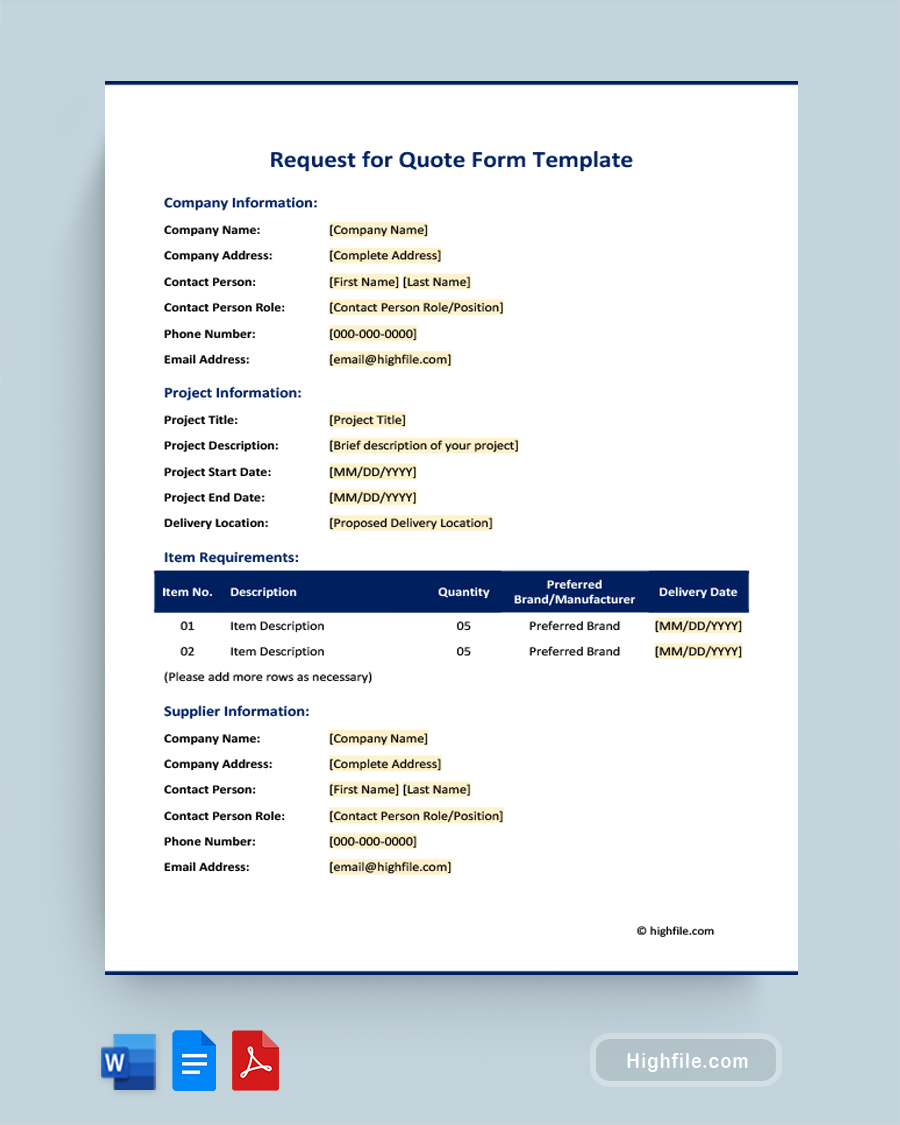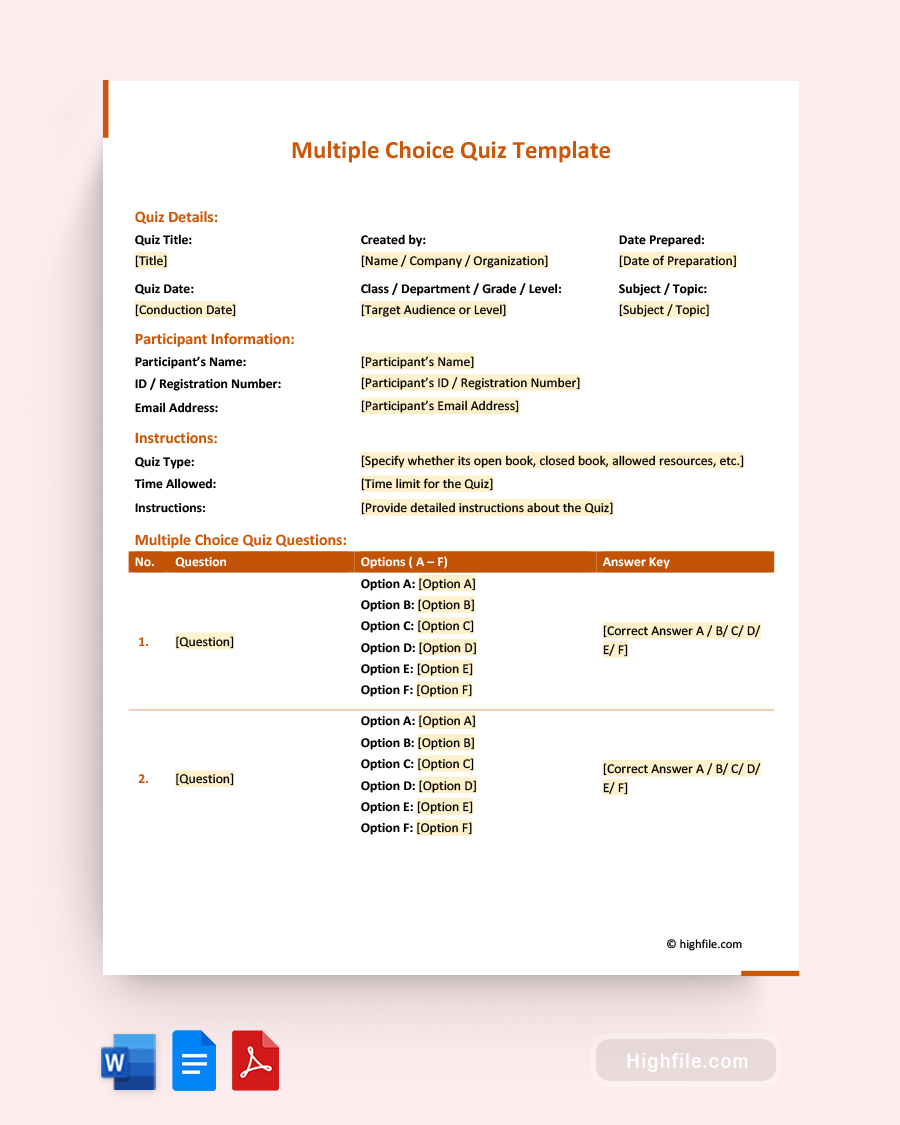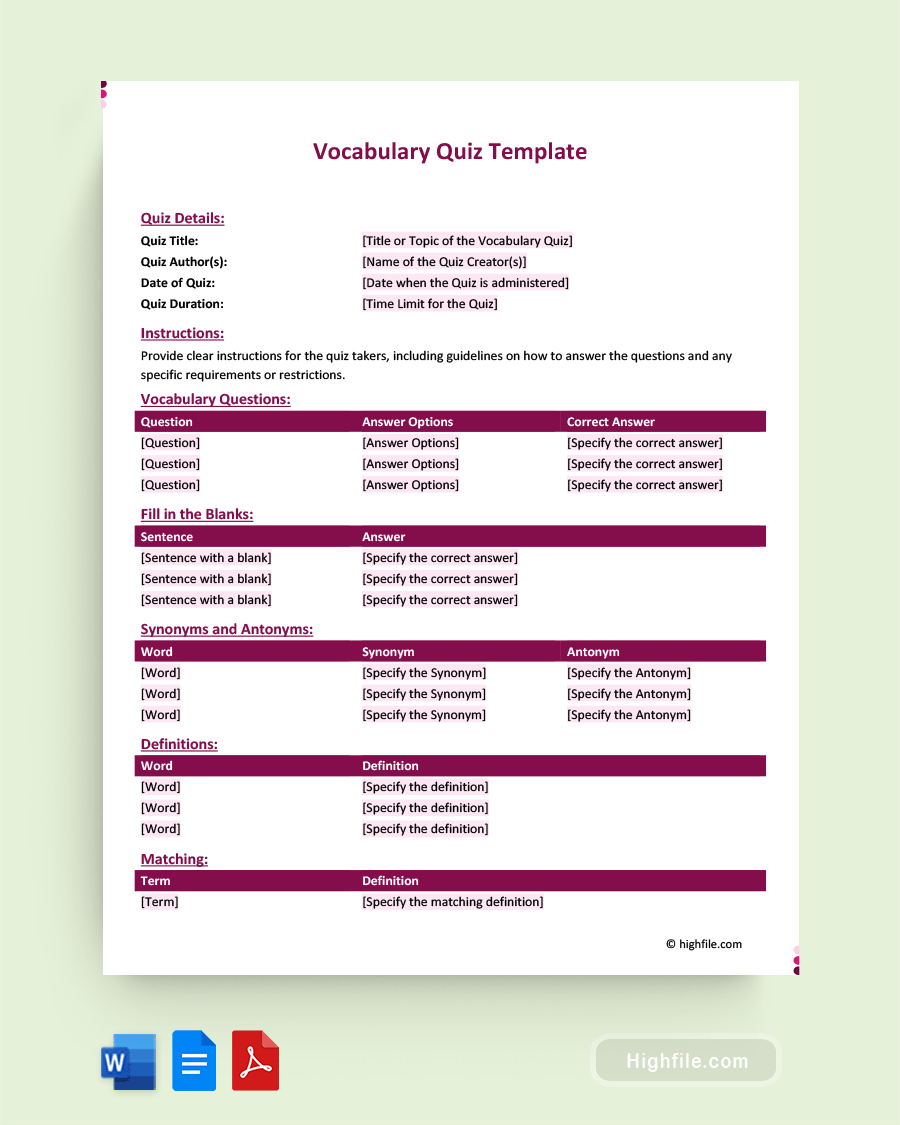The questions a business asks when hiring new candidates are how they get an idea of who the person is. It tells the employer their history, experience, and more. How you go about asking questions and which ones you prioritize can significantly impact your hiring process and who you end up employing. Unfortunately, that can make creating a good series of questions stressful. After all, a lot is riding on the quality of your employees. With our Interview Questions Template, you can cut out the guesswork, save time and craft a high-quality, professional questionnaire. Read on, and we’ll show you how.
What Is an Interview Questions Template?
An interview questions template is a structured document that serves as a guide for creating a questionnaire used for conducting interviews. The template provides a framework for interviewers to ask relevant and consistent questions to evaluate candidates’ qualifications, skills, experience, and fit for a particular position. It outlines different categories of questions to cover during applicant interviews and makes some suggestions for the most common options. Ensuring a comprehensive, professional assessment of candidates helps facilitate effective decision-making during the hiring process.
Interview Questions Template
Why Is an Interview Questions Template Important?
An interview questions template is important because it helps you maintain consistency, fairness, and efficiency when interviewing. Here are the reasons why using this document improves your hiring process:
- Structured Approach: The template provides a structured approach to conducting interviews. It ensures that all necessary areas are covered, and no critical information is overlooked.
- Standardized Evaluation: By using an interview questions template, interviewers can ask consistent questions to all candidates. Doing this provides for a fair and unbiased evaluation of qualifications and fit.
- Comprehensive Assessment: The template includes various categories of questions that cover different aspects of what you need from an employee, like qualifications, experience, technical skills, behavioral attributes, and cultural fit. This creates a more holistic assessment of candidates.
- Efficient Decision-Making: A template helps interviewers focus on relevant information, making the evaluation process more efficient and enabling informed decision-making.
- Documentation and Comparison: The interview questions template records the interview. Proper documentation of candidate responses makes it easier to compare all your candidates objectively.
Essential Elements of an Interview Questions Template
The essential elements of an interview questions template are (unsurprisingly) focused on the questions you need to ask every applicant to determine who is the best option. Choosing high-quality employees is critical to the success of any business. Here is what you should expect to find on a professionally designed interview questions template:
- Interview Details: This section is for essential information about the interview, such as the candidate’s name, interview location, date, and time.
- Tables with Questions and Notes/Indicators: The template features tables or sections where interviewers can record questions, take notes on candidate responses, and provide indicators or ratings to assess candidate performance. The tables usually include the following categories:
- Introduction and Warm-up Questions: These questions help establish rapport, engage candidates, and create a comfortable environment for the interview.Qualifications and Experience: This category assesses candidates’ qualifications, skills, and relevant experience.Technical/Job-Specific Questions: Technical questions evaluate candidates’ technical knowledge, proficiency in job-specific tasks, or industry-specific competencies. These help weed out undereducated candidates who lack experience or fail to grasp the intricacies of their chosen field.Behavioral and Situational Questions: These questions help you assess candidates’ behavioral attributes like problem-solving skills and decision-making abilities.
- Cultural Fit and Personal Attributes: These questions gauge candidates’ alignment with the organization’s values, work ethic, teamwork skills, and overall fit within the company culture.
- Questions from the Candidate: A good interview questions template may include a section where interviewers can note down questions asked by the candidate during the interview.
- Conclusion: The final section summarizes the interview, highlights key points, and allows interviewers to discuss the next steps with the applicant.
FAQ
When deciding on the weightage or scoring system for each question in the interview questions template, consider the following:
Relevance: Questions directly related to essential job requirements should carry more weight.
Impact: Consider the impact of each question on the overall evaluation. Questions that reveal critical information or demonstrate key competencies should be given higher weightage than those that only collect basic data.
Consistency: Strive to assign weights or scores across different interviewers and candidates consistently. Ensuring that the scoring system aligns with the overall evaluation criteria and is applied uniformly is vital.
Alignment with Job Description: Align the weightage or scoring system with the job description and its requirements. Emphasize questions directly addressing the skills, experience, and attributes needed to perform the intended job.
Interview Process: Account for the overall interview process and the importance of each question in contributing to the holistic evaluation of candidates. Consider the relative significance of different categories of questions in the overall decision-making process as determined by the specific needs and priorities of the position and organization.
The interview questions template is crucial in maintaining a structured and consistent interview process across different interviewers because it sets the tone and expectations. Here’s how it can help:
Standardization: The template provides a standardized set of questions and categories. Doing this makes sure that all interviewers cover the same essential areas during the interview.
Uniform Evaluation Criteria: By using the same interview questions template, interviewers have a common framework to evaluate candidates consistently. Focusing on the same dimensions of qualifications, skills, experience, behavior, and fit promotes equality.
Documentation and Comparison: The template is a reference point for interviewers to document candidate responses. This facilitates comparison and ensures that all interviewers assess candidates based on the same criteria.
Training and Guidance: The template can be shared with interviewers during training sessions to guide the interview process and enforce a shared understanding of expectations and evaluation criteria.
Efficient Collaboration: The template enables interviewers to collaborate effectively. By reviewing each other’s notes, and discussing candidate responses, interviewers and other stakeholders involved in the hiring decisions can collectively make informed decisions.
The interview questions template can contribute to ensuring an unbiased and fair interview process in the following ways:
Standardized Questions: Using the same set of questions for all candidates makes the interview process more consistent and less prone to bias. Every candidate receives equal treatment.
Behavioral and Situational Questions: Incorporate behavioral and situational questions that focus on assessing competencies and behaviors directly related to the job requirements instead of more subjective factors.
Structured Evaluation: Use the interview questions template’s notes/indicators section to record candidate responses and performance objectively. Focus on observable behaviors and concrete examples rather than personal impressions or biases.
Training on Unconscious Bias: Provide interviewers with training on unconscious bias. It’s important to raise awareness and mitigate any potential biases that could influence their evaluation.
Diverse Interview Panels: Encourage diverse interview panels. This helps to minimize the impact of individual biases and provides different perspectives during the evaluation process.
Key Points
An interview questions template is a valuable formula for creating thorough, unbiased effective, and consistent interview questions. Using a template establishes a structured approach. It also ensures comprehensive assessment and facilitates fair decision-making. Customize the specific elements included in the template to better suit your specific needs. You can quickly and easily modify or add to different question categories to help seek out the best-qualified person for the job. By utilizing the template effectively, you can enhance the quality of your interviews, promote fairness and consistency, and ultimately make better-hiring decisions based on more comprehensive data.



